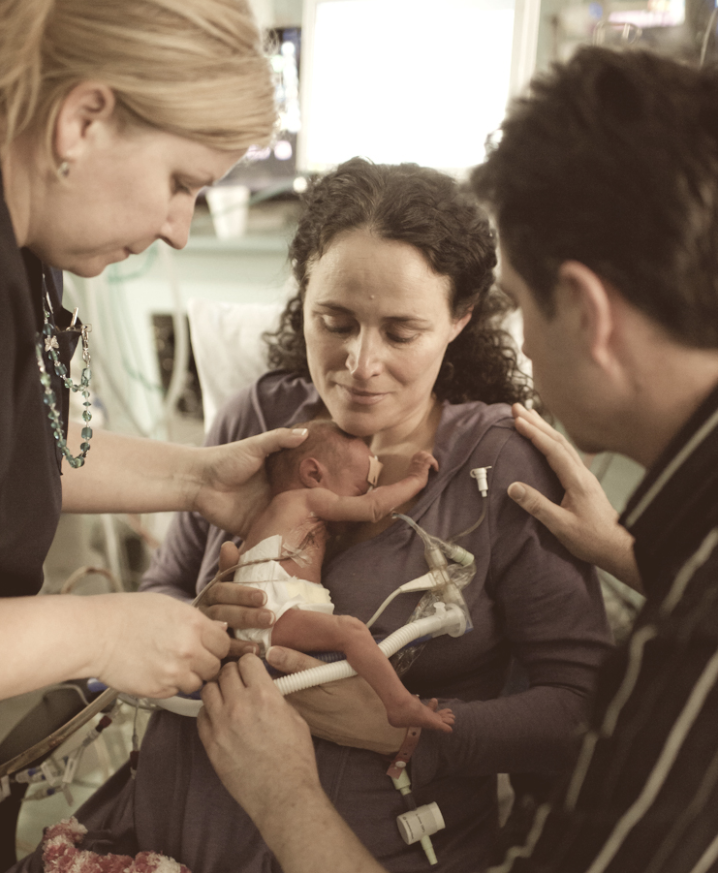This is probably the question that most would want to ask, did they have the nerve to listen to the answer. In fact, some do, because – really, how does one survive the death of one’s own child?
Let me tell you – you will survive this loss.
Table of Contents
The perspective of time and the myth of time
Writing this article, I’m now looking back 10 years to the time my daughter A’Mya, the younger of identical twins, died in my arms, just three days old.

But time in itself didn’t do the surviving, the healing.
Grief takes a lot of work. Work dealing with strong emotions, with the bleakness of life without your child, with finding the will to live again, even if it’s hard.
“Time does NOT heal all wounds”, especially not the pain of grief. It does however give perspective because looking back, I can see the gems of wisdom, understanding, and the practice of letting go I have gathered along the way.
The helpful…
So, what specifically does help?
I suggest you try to …
- find someone to talk to, preferably someone professionally trained with grief or someone who does understand, because they have been where you are now.
- find a community of supportive, understanding companions, such as a peer support group or a grief support group.
- find someone specific who you can relate to who is a couple of years ahead of you in terms of their loss and talk to them about what you are experiencing. In the best case, they will normalize what you experience.
- find something that you find supports you with strong emotions. This is individually different: for some it is the above mentioned, for others it is reading how others dealt with it, for yet others it is a creative, healing activity or phyisical activity. For me, for example, it was walking in the forest along a stream, which really supported me.
- share your story, talk about your child, remember and celebrate them.
And the not-so-helpful…
There are other things that didn’t support me. Some of those, I noticed right away, others only much later. Let’s see if they ring a bell:
- people proclaiming grief myths (you can read about some here, here or in the book Bridging the Grief Gap).
- people no longer talking to me. I would have wished for them to stick around and say things like: “I don’t know what to say, but I’m here” or “I don’t think I’m a big help… I don’t know what to do” and at least stay in contact with me.
- exposing myself to grief triggers early on, in my case identical twins. That really made me angry at the perceived unfairness of life.
- people sharing their religious or spiritual beliefs about “there is always a reason for everything” or “God has a plan”. Those sentences really pissed me off!
- people implying I should ‘move on’ or be ‘feeling differntly to what I was feeling’.
- people giving advice who had no idea of the situation we were in. They were just trying to make themselves feel better.
Do not just survive, thrive
If you’re in your early, raw stage of grief this paragraph might not make sense to you. Believe me, it didn’t enter into the realm of possibilities for me either at that time.
For the first two years, I didn’t even put on any mascara, let alone make-up. I didn’t care. I had a baby to care for and I did my best but I didn’t have the energy for much else. Having said that, we moved from Sydney, Australia to Zurich, Switzerland, 11 months after her loss, so I really don’t remember who on earth I managed that.
I was angry A LOT of the time and remember telling my husband, about 18 months post-loss: “You can leave anytime, I’m stuck with myself.” I was so fed up with the ‘new normal self’ that was supposed to be me. I was angry at my mother, who died of suicide just 4,5 months after my daughter. I wrote a lot, I walked the forest, I growled, I cried and in the second year I was pulled to write the first book, Grieving Parents: Surviving Loss as a Couple.
In writing that book, I interviewed about 20 bereaved parents and support professionals. I got to see ahead in time as some of them were further out from their loss. I understood more and more about my grief, even though I was already a trained counsellor before my loss.
With time, I found that I didn’t want to just survive this. I wanted to thrive. As a friend of mine says: I wanted to gather all the vitamins this life challenging situation had in store for me. Big sigh. It was hard work, but worthwhile nevertheless.

Leave a Reply